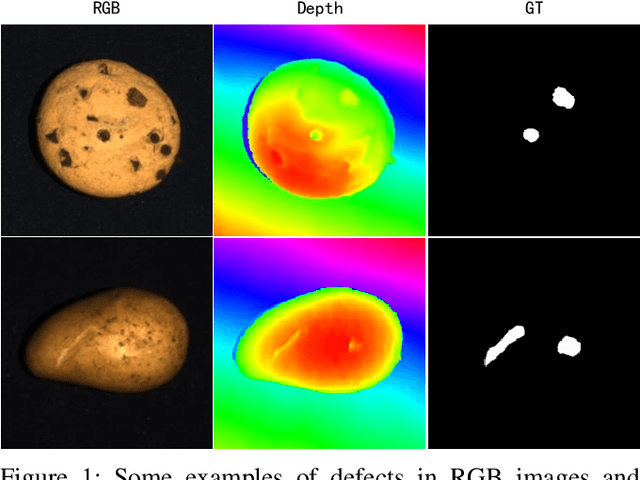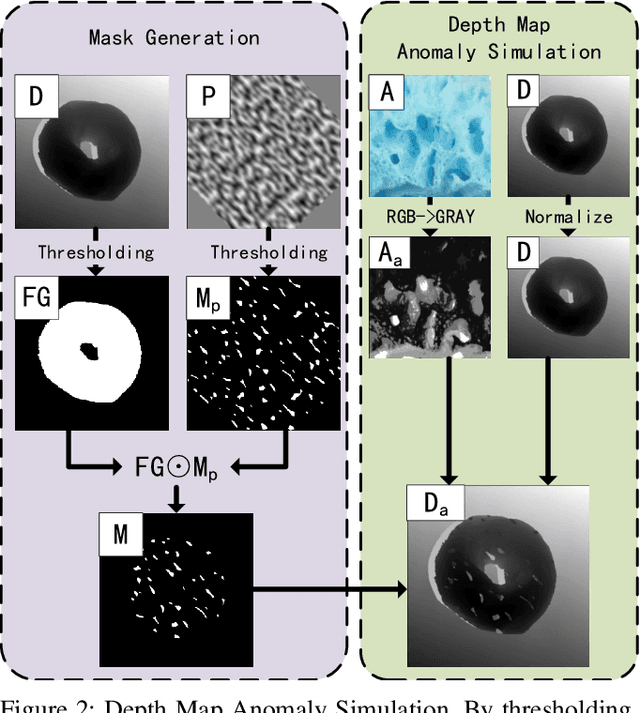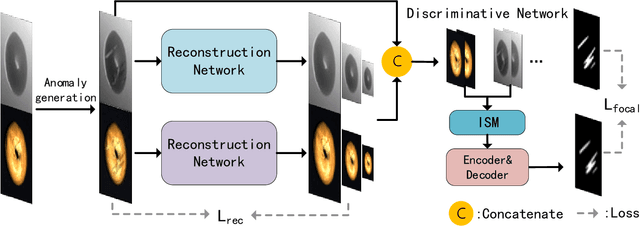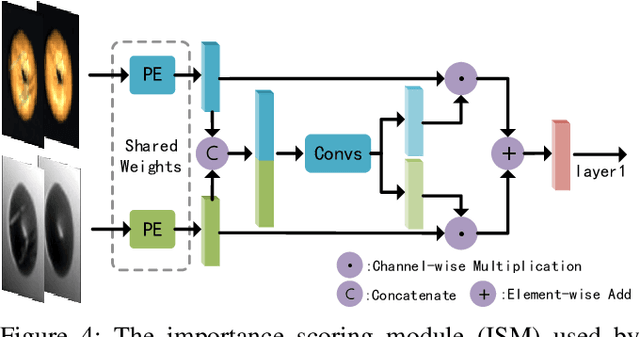Dual-Branch Reconstruction Network for Industrial Anomaly Detection with RGB-D Data
Paper and Code
Nov 12, 2023



Unsupervised anomaly detection methods are at the forefront of industrial anomaly detection efforts and have made notable progress. Previous work primarily used 2D information as input, but multi-modal industrial anomaly detection based on 3D point clouds and RGB images is just beginning to emerge. The regular approach involves utilizing large pre-trained models for feature representation and storing them in memory banks. However, the above methods require a longer inference time and higher memory usage, which cannot meet the real-time requirements of the industry. To overcome these issues, we propose a lightweight dual-branch reconstruction network(DBRN) based on RGB-D input, learning the decision boundary between normal and abnormal examples. The requirement for alignment between the two modalities is eliminated by using depth maps instead of point cloud input. Furthermore, we introduce an importance scoring module in the discriminative network to assist in fusing features from these two modalities, thereby obtaining a comprehensive discriminative result. DBRN achieves 92.8% AUROC with high inference efficiency on the MVTec 3D-AD dataset without large pre-trained models and memory banks.
 Add to Chrome
Add to Chrome Add to Firefox
Add to Firefox Add to Edge
Add to Edge